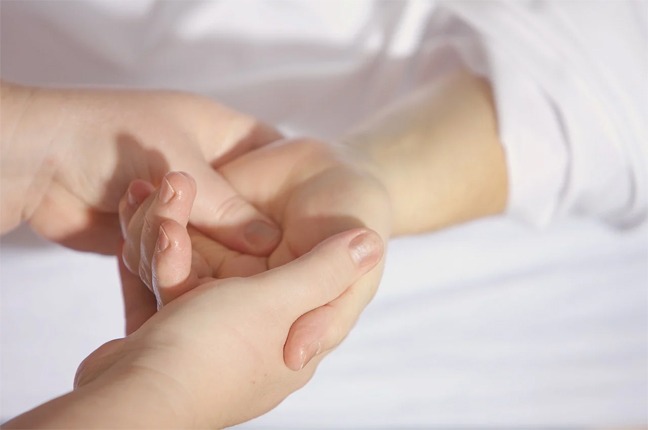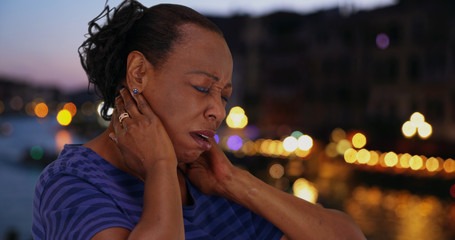Benefits of Massage and Acupuncture for Trauma and PTSD
Trauma and PTSD Treatment
 Post-Traumatic Stress Disorder (PTSD) is a complex and serious mental health disorder resulting from a traumatic experience. If left unrecognized and untreated, the symptoms of PTSD can be extremely debilitating. They can interfere with an individual’s ability to work, to maintain relationships, and live a healthy, fulfilling life.
Post-Traumatic Stress Disorder (PTSD) is a complex and serious mental health disorder resulting from a traumatic experience. If left unrecognized and untreated, the symptoms of PTSD can be extremely debilitating. They can interfere with an individual’s ability to work, to maintain relationships, and live a healthy, fulfilling life.
PTSD is rooted in the body’s “fight or flight” instinct. This instinct enables us to react quickly to a traumatic event. The body automatically triggers an appropriate response to danger and then turns that reaction off when the danger is past.
When the trauma is severe or of long duration, however, that “fight or flight” reaction continues even after the danger is past. The inability to shut off the “fight or flight” instinct leads to the symptoms we now associate with PTSD. Just a few of the most common symptoms include:
- Hypersensitivity and hyperawareness
- Anxiety
- Depression
- Irritability and anger
- Insomnia / difficulty sleeping
- Flashbacks and nightmares
- Feelings of isolation and detachment
- Physical pain (not related to a specific physical cause)
Treatment for PTSD usually involves a long-term commitment to psychotherapy, as well as medications if necessary to control some specific symptoms.
Touch therapies such as acupuncture and massage can also play an important role in managing PTSD symptoms and in longer term recovery.
In the short term, massage and acupuncture can help promote relaxation while decreasing feelings of stress, anxiety, and depression. Over the longer term, touch therapy like acupuncture and massage can help individuals with PTSD manage their feelings relating to touch, trust, control, and relationship-building.
Stress-Reducing Benefits of Massage and Acupuncture for PTSD
Both acupuncture and massage are well known for their ability to help minimize stress, anxiety, and depression. This is especially important for individuals with PTSD, for whom these feelings can be overwhelming.
Massage addresses stress that is held in the body as muscle tension. Massage therapy releases this tension by manipulating and kneading those tight muscles. Promoting physical relaxation can reduce body aches and headaches that result from stress and anxiety. And it often leads to an overall positive impact on emotional health and overall well-being.
Acupuncture works differently than massage, but has similar stress-reducing effects that can be highly effective for individuals with PTSD. Acupuncture works by re-balancing the body’s flow of life energy (“qi”). By inserting very thin sterile needles into key points around the body, acupuncture helps stimulate the body’s self-healing mechanisms to reduce feelings of stress, anxiety, and depression.
Touch Therapy Can Help Build Trust for PTSD Patients
Massage and acupuncture can play a critical role in helping to reduce feelings of stress and anxiety, while promoting relaxation, for patients with PTSD.
However, touch therapies like acupuncture and massage can also help individuals with PTSD learn to rebuild trust and control.
In other words, how the therapies are handled can be just as important as the therapy itself.
For many people suffering from PTSD, touch itself can be a triggering event. Over the long term, touch therapy like acupuncture and massage can help these individuals accept physical contact without stimulating the “fight or flight” response.
The key lies in enabling the patient to remain in control throughout each therapy session and to build a relationship of trust with the licensed massage therapist or acupuncturist.
Open communication from the very first consultation through the conclusion of each therapeutic session is absolutely critical to long-term success.
The client must understand what to expect from each session, and trust that he or she can make changes and adaptations throughout each session, even stopping if necessary.
The massage therapist and acupuncturist must listen carefully to the client’s concerns and be willing to adapt their technique in each session to address those concerns.
Like any therapy, massage and acupuncture can help clients with PTSD find relief from their symptoms but success does not happen overnight. It requires a long-term, conservative approach designed to build trust and communication. But in the end, massage and acupuncture can play an integral role in a comprehensive treatment program for PTSD.
Contact Urban Acupuncture Center in Columbus, OH For More Information
For more information about how acupuncture, massage therapy and other alternative healing treatments can help you, please contact the Urban Acupuncture Center Board Certified Licensed Acupuncturist’s team at Indianola Ave, Clintonville (614) 725-2488 | Main St, Westerville (614) 426-4406 or click here. Taking new patients in and around greater Columbus, Ohio.

 If you are living with chronic pain, you know just how debilitating it can be.
If you are living with chronic pain, you know just how debilitating it can be.